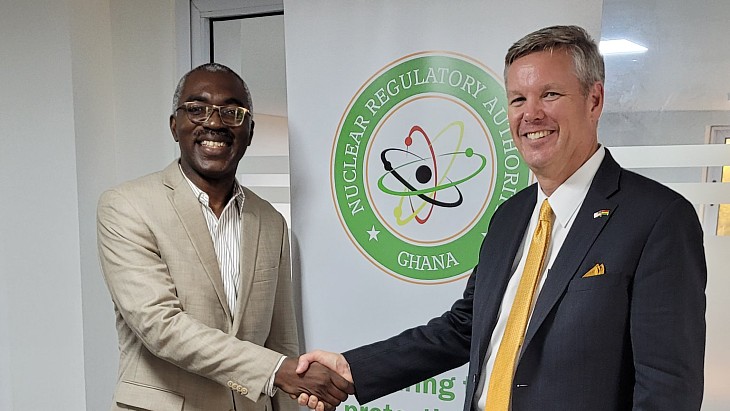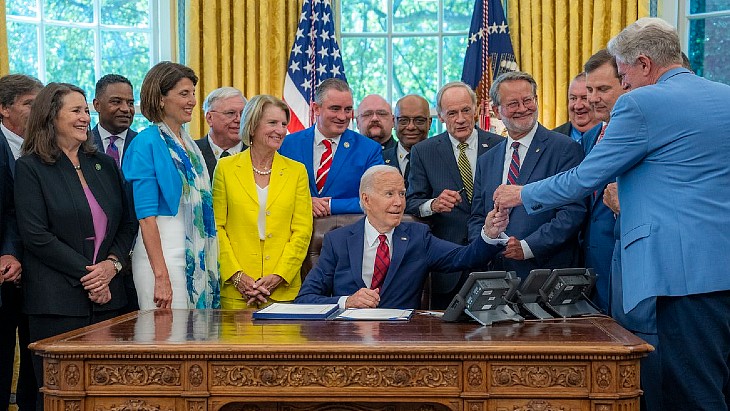USA and Ghana reaffirm nuclear regulation cooperation

NRC chairman Christopher Hanson and Nii Kwashie Allotey, director general of Ghana's Nuclear Regulatory Authority (NRA), discussed "their significant collaboration since the 2017 signing of an inaugural bilateral arrangement for cooperation and the exchange of technical information" as Ghana develops a regulatory programme and framework for its planned nuclear energy.
Allotey said: "We value the partnership that the NRA has forged over many years with the US NRC ... we greatly value the NRC’s expertise as we seek to develop Ghana’s own strong, independent regulatory oversight programme. International partnerships such as this provide a solid foundation for the NRA's oversight programmes, which will protect people and the environment and align with international standards and obligations."
Hanson, who was visiting Ghana, said: "We have worked closely with Ghana’s NRA as it develops a technically competent, independent regulatory programme in preparation of overseeing commercial nuclear power in Ghana. Establishing a strong and transparent regulatory framework based on high safety standards is a critical step toward the adoption of nuclear technologies. We have a longstanding partnership with Ghana's regulator, and we welcome our continued collaboration as NRA progresses in establishing a regulatory structure."
Listen: World Nuclear News Podcast - The prospects for nuclear energy in Africa
During his visit to the country Hanson also met with the Ghana Atomic Energy Commission, the Ministry of Energy. and the Ministry of Environment, Science, Technology and Innovation. The NRC said a key message was the importance of regulatory independence for building public trust.
The Ghana Nuclear Power Programme Organisation was formed to oversee the implementation and coordination of the nuclear power programme following a 2008 cabinet decision to include nuclear in the energy mix of the African country. Ghana subsequently declared its intention to pursue a nuclear power programme for peaceful purposes in August 2013, through a letter submitted to the International Atomic Energy Agency (IAEA). The Nuclear Regulatory Authority and a project company - Nuclear Power Ghana - were also established. Ghana has adopted the IAEA's Milestones Approach, a phased method to help countries that are considering or planning their first nuclear power plant.
In August last year, President Nana Akufo-Addo said the country had officially moved from the first of its three-phase programme - 'Considerations before a decision to launch a nuclear power programme is launched' - to Phase 2 - 'Preparatory work for the construction of a nuclear power plant after a policy decision has been taken'.
The third and final stage of the policy is 'Activities to implement the first nuclear power plant'. According to information from World Nuclear Association, Ghana's Minister of Environment, Science, Technology and Innovation in 2021 said five vendors - from the USA, Russia, Canada and South Korea - had responded to a request for interest in helping the country build its first plant, with an expectation that a contract for a 1 GWe plant would be signed sometime in 2024-2025. Last year the USA, Japan and Ghana announced a strategic collaboration to support the deployment of small modular reactors in the West African nation.



_49215.jpg)





_66488.jpg)


